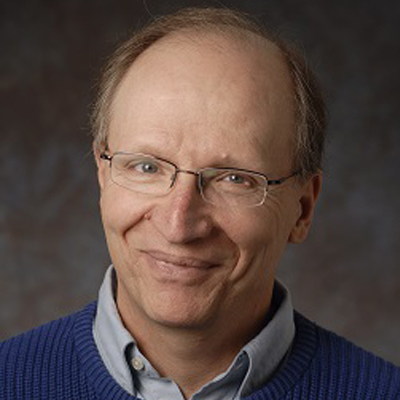Understanding climate systems by examining extreme weather events and climate changes in the past
Climate is changing, primarily as a result of human activities. Because these changes are already underway and are expected to amplify in the decades to come, society must prepare for the impacts of climate change as well as work to limit its magnitude. Dr. Anthony Broccoli, Professor of Atmospheric Science at Rutgers University, studies the physical mechanisms responsible for changes in climate, including the processes that can lead to changes in heat waves, extreme rainfall, and storm tracks. Dr. Broccoli’s efforts to understand the climate system is thus twofold: modeling the distant past, during which climate changes where large but only indirect information is available, and modeling the more recent era, in which climate changes are more moderate but more precise data from modern observing systems like weather stations and satellites are abundant. By exploring and comparing the two models, Dr. Broccoli hopes to shed light on how climate systems changed in the past, and better predict changes that are happening now and in the future.
In order to simulate, understand, and predict changes in the climate system, Dr. Broccoli uses mathematical climate models that are designed to express the laws of physics in a computer program. These models can be used to perform “What If” experiments, which he and his team use to identify the most important causes of past and future changes in climate. Using this approach, Dr. Broccoli has studied a broad range of topics including the climate of the last ice age, the effects of mountains on regional aridity, the response of climate to very slow changes in Earth’s orbit, influences of high-latitude climate change on tropical rainfall, changes in intense precipitation events, and changes in global temperature and precipitation during the 20th century. Dr. Broccoli and his team use a set of climate model simulations developed by the global climate community, drawing upon the work of many scientists worldwide in a collaborative research environment. He also collaborates with colleagues at the Geophysical Fluid Dynamics Laboratory of National Oceanic and Atmospheric Administration, where some of the world’s best climate models have been developed. By analyzing these models, Dr. Broccoli ultimately hopes to help our society anticipate what changes in climate lie ahead. To this end, Dr. Broccoli works to communicate understanding climate change to policymakers and stakeholders and engages in many other outreach efforts.
Current research includes:
- Extreme Weather Events: Dr. Broccoli’s research focus is at the intersection of climate and weather. Preparing for further climate change requires us to understand how climate affects high-impact weather events (e.g., heat waves, heavy rain event, snowfall, coastal storms), and Dr. Broccoli examines how extreme weather events in different locations of North America relate to the large-scale patterns of circulation in the atmosphere. Moreover, Dr. Broccoli is working to determine whether the existing climate models are capable of simulating these patterns realistically, and if not, what their biases are and how he can improve them.
- Climate from the Distant Past: Dr. Broccoli is trying to understand the mechanisms that caused the climate change in the distant past by analyzing the indirect data collected by geologists and paleoclimatologists who gather indicators of past climate conditions naturally recorded in tree rings, deep sea sediments, and ice core data. In this way, Dr. Broccoli is able to assemble a more complete picture of how climate changed in the past and why, with the hopes that it will help better predict and prepare for changes in the future.
Bio
Dr. Anthony Broccoli’s research group focuses on the dynamics of the climate system, with a specific emphasis on understanding the fundamental mechanisms that are involved in changes in climate. Climate models are powerful tools for learning about such mechanisms, as they enable us to test hypotheses about climate system behavior by performing controlled experiments. A substantial part of his research involves the simulation of past climates, such as the climate of the last ice age or the response of climate to changes in the earth's orbit. The value in studying past climates derives from the large changes in climate that have taken place over geologic time, which provide a framework for developing a better understanding of the key feedbacks and processes that determine how the climate system responds to external forcing.
Even since childhood, Dr. Broccoli has had a deep fascination with weather and climate. He had a weather station that he built in his backyard while he was in high school as well as college, with which he took daily observations of temperature and precipitation. During his undergraduate years, Dr. Broccoli became interested in research as a way of pursuing questions that had not yet been answered. He became intrigued by the dramatic changes in climate that occurred in the distant past and was motivated to understand their causes. He was introduced to climate modeling while working for NOAA, and has used models ever since as a way of investigating the mechanisms that are responsible for changes in climate.
Outside of research, Dr. Broccoli enjoys “anything that involves being outdoors,” including gardening, hiking, bicycling, and playing an occasional round of golf.
For more information, visit http://envsci.rutgers.edu/~broccoli
In the News
An example of Dr. Broccoli's involvement in outreach efforts to inform policy makers, stakeholders, and the general public about climate change


